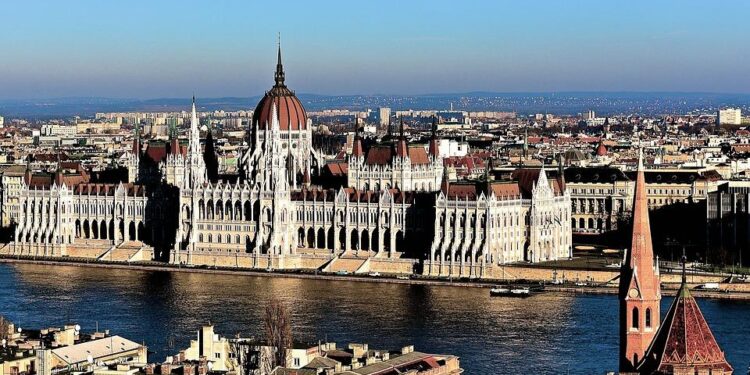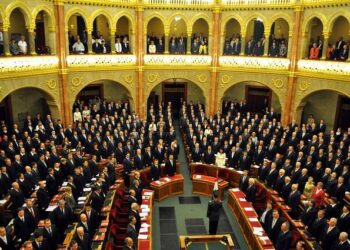In a recent development that has sparked widespread debate across Europe, a prominent EU legal expert has condemned Hungary’s stringent measures targeting LGBTQ+ content, labeling the crackdown as a clear violation of human rights. The controversy centers on Budapest’s controversial legislation restricting access to and dissemination of LGBTQ+ materials, which critics argue undermines fundamental freedoms and breaches EU values of equality and non-discrimination. This dispute intensifies ongoing tensions between Hungary and the European Union over rule of law and minority rights, raising pressing questions about the future of civil liberties in the region.
Hungary’s Restrictions on LGBTQ Content Challenge EU Human Rights Standards
Legal experts within the European Union have raised serious concerns over Hungary’s recent legislation that restricts the dissemination of LGBTQ+ content. The new laws, which effectively ban positive or neutral portrayals of LGBTQ+ individuals in media accessible to minors, are being criticized for undermining fundamental human rights principles enshrined in EU treaties. According to prominent EU lawyers, these restrictions not only limit freedom of expression but also institutionalize discrimination, contradicting commitments to equality and non-discrimination that member states are required to uphold.
The backlash emphasizes several key issues:
- Violation of Free Speech: The legislation stifles open discussion about LGBTQ+ identities by censoring educational materials and cultural content.
- Discrimination Against Minorities: By targeting specific groups, the restrictions create a hostile environment for LGBTQ+ individuals, exacerbating social exclusion.
- Conflict With EU Law: Hungary’s measures potentially breach the Charter of Fundamental Rights of the European Union, which guarantees equality before the law.
| Aspect | EU Standard | Hungary’s Policy |
|---|---|---|
| Freedom of Expression | Protected Broadly | Content Ban for Minors |
| Anti-Discrimination | Equal Treatment | Selective Censorship |
| Human Rights Compliance | Universal Adherence | Questioned by EU Lawyer |
Legal Experts Detail Impact on Freedom of Expression and Equality
The recent Hungarian legislation targeting LGBTQ+ content has raised profound concerns among legal experts across Europe. According to human rights advocates and EU lawyers, these measures pose a direct threat to fundamental freedoms, particularly the right to freedom of expression and the principle of equality before the law. Legal specialists emphasize that restricting access to content depicting or discussing LGBTQ+ identities not only censors vital social dialogue but also contravenes international human rights treaties to which Hungary is a signatory.
Experts highlight several critical areas of impact, including:
- Discrimination Amplification: The law institutionalizes stigma, promoting social exclusion of LGBTQ+ individuals.
- Education Blockage: Limitations on educational materials undermine informed discussions about gender and sexuality in schools.
- Media Censorship: Broad constraints impede journalists and content creators from covering LGBTQ+ topics without fear of legal repercussions.
| Legal Aspect | Potential Violation | Impact on Society |
|---|---|---|
| Freedom of Expression | Article 10, ECHR | Suppression of LGBTQ+ narratives |
| Equality Before the Law | Article 14, ECHR | Unequal protection under legislation |
| Child Rights & Education | UNCRC | Restricted access to inclusive education |
Calls for Stronger EU Intervention to Uphold Fundamental Rights in Hungary
The recent measures enacted by Hungary targeting LGBTQ+ content have sparked widespread criticism across the European Union. Legal experts emphasize that such actions not only breach the bloc’s commitment to fundamental rights but also signal a worrying retreat from democratic values. An EU lawyer involved in the case described Hungary’s legislation as a direct affront to freedom of expression and non-discrimination principles, urging Brussels to adopt a more assertive stance to protect vulnerable communities within its borders.
Advocacy groups and policymakers alike are now calling for:
- Enhanced monitoring mechanisms to ensure compliance with EU human rights standards
- Targeted infringement procedures against member states undermining LGBTQ+ protections
- Clearer sanctions for violations of the Charter of Fundamental Rights of the European Union
- Support programs for civic organizations working on equality and diversity
| Key Aspect | EU Position | Hungary’s Action |
|---|---|---|
| Freedom of Expression | Protected under Article 11 | Restriction on LGBTQ+ content |
| Non-Discrimination | Guaranteed by Charter | Laws targeting LGBTQ+ individuals |
| Rule of Law | Monitored by ECJ | Legislation challenged in courts |
In Summary
As Hungary faces increasing scrutiny over its restrictions on LGBTQ+ content, the European Union’s legal stance underscores mounting concerns about the erosion of fundamental rights within member states. The ongoing debate highlights the critical balance between national policies and adherence to EU human rights standards-an issue that remains at the forefront of European political discourse. The coming weeks will be pivotal as legal challenges advance and the broader implications for freedom of expression and equality continue to unfold.
















